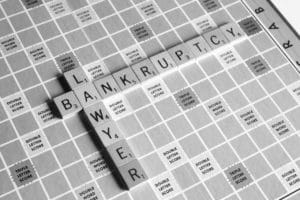
The devastation caused by COVID-19 has impacted individuals and businesses on a global scale. Not only has it cost many lives, but the pandemic has also created devastating financial effects for individuals, families, and businesses.
Due to the financial impact of the virus, many find themselves in the worst financial situation they’ve yet faced. In the United States there were 560 commercial bankruptcies filed in April alone, and some 36.5 million former employees have filed for unemployment.
As difficult as it may be, filing for bankruptcy can be a way of preserving your credit, company, and property when financial losses become debilitating, but it’s important to know your options before making any decisions. Read the guide below for more information on filing for bankruptcy.
Decide Whether Bankruptcy Is the Right Step for You
Declaring bankruptcy is a complex legal process which can often negatively impact your credit score, which could put future loan opportunities in jeopardy.
However, legally and properly declaring bankruptcy can give your business or family a new start, and it can provide relief when you are unable to pay back your debts.
Examples of cases when it is beneficial to file for bankruptcy:
- If you’re being harassed or called by bill collectors and you’re unable to make required payments.
- If you have several credit cards and outstanding loan debts that you cannot feasibly pay back.
- You have a lot of debt, but you haven’t considered consolidating your debts to reduce extra fees.
- You’re only making minimum payments on credit cards and debt when you have the ability to pay off more.
Understand Which Type of Bankruptcy Best Suits Your Situation
When it comes to types of bankruptcy, there are two common types for individuals that are worth consideration:
Chapter 7 Bankruptcy
Chapter seven is the most common type of bankruptcy, and it works to reduce debt by liquidating assets that are then distributed to creditors.
Some common reasons for filing for chapter seven bankruptcy include unemployment and excessive medical expenses. After filing, you should expect a notice of discharge within four months, and a record of bankruptcy will remain on your credit for ten years.
However, plenty of individuals are still able to buy homes and other assets even with bankruptcy on their credit history. While chapter seven might be suitable for some, anyone who desires to keep their property may want to consider other debt repayment options.
Chapter 13 Bankruptcy
Chapter thirteen bankruptcy may be a better option for you if you want to keep your property and assets. This method is known as “reorganization bankruptcy” and generally grants the individual between three and five years to pay off their debts. Additionally, any debts remaining after the grace period are forgiven.
This can be a great option for those who still have a reliable source of income, but you must receive approval from both courts and creditors before collection calls stop.
Compile Your Financial Records and Take Credit Counseling
Before seeking professional help for bankruptcy, it’s important to start compiling your financial records. You’ll need to collect your tax returns for the past two years, any pay stubs from the past six months, bank account statements, and any other documentation relating to your income, assets, and debt.
Once you’ve gotten your records together, you can start receiving credit counseling, which is required before filing for bankruptcy. Credit counseling helps you evaluate your options and prepare you for the next steps of completing your bankruptcy forms and submitting your filing fee.
When it comes to complex legal processes such as filing for bankruptcy, it’s always best to work with a bankruptcy lawyer in order to understand all your options.
Complete a Debtor Education Course
As per the Bankruptcy Abuse Prevention and Consumer Protection Act of 2005 (BAPCPA) , those who wish to receive a discharge of Chapter 7 or Chapter 13 bankruptcy are required to complete the Debtor Education Course.
This is a mandatory second round of credit counseling that’s meant to educate you and help you make responsible financial decisions in the future so that you won’t ever have to file for bankruptcy again.
Filing for bankruptcy can be a stressful process, but in cases of extreme financial hardship, it can help you get a clean start and move toward future opportunities.